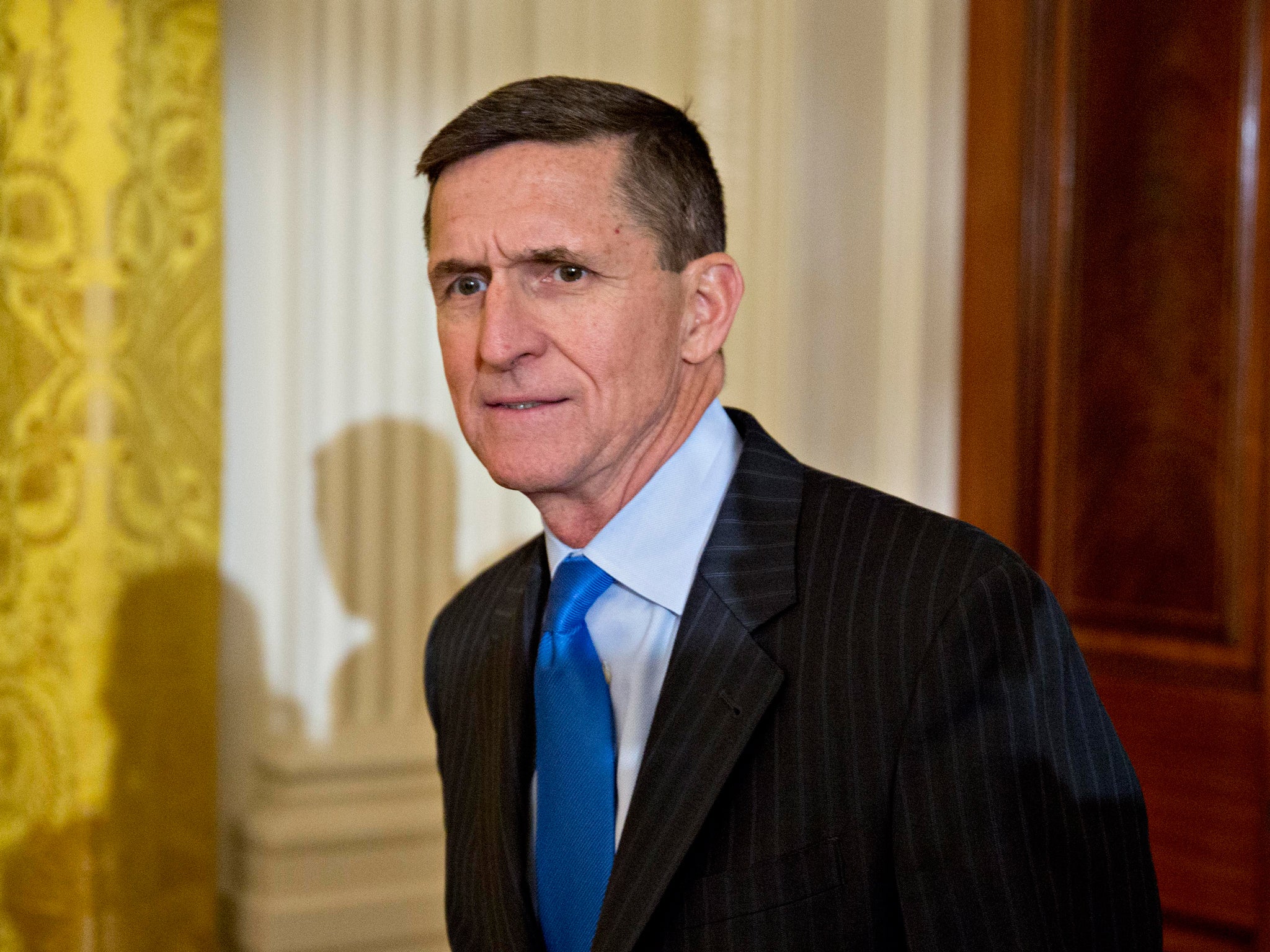Mike Flynn's resignation has shown that the US media will not be bullied by President Trump
The Fourth Estate in the US, hated though it may be by America’s head of state, is not taking the presidency lying down. There are lessons here for journalists across the world

Your support helps us to tell the story
From reproductive rights to climate change to Big Tech, The Independent is on the ground when the story is developing. Whether it's investigating the financials of Elon Musk's pro-Trump PAC or producing our latest documentary, 'The A Word', which shines a light on the American women fighting for reproductive rights, we know how important it is to parse out the facts from the messaging.
At such a critical moment in US history, we need reporters on the ground. Your donation allows us to keep sending journalists to speak to both sides of the story.
The Independent is trusted by Americans across the entire political spectrum. And unlike many other quality news outlets, we choose not to lock Americans out of our reporting and analysis with paywalls. We believe quality journalism should be available to everyone, paid for by those who can afford it.
Your support makes all the difference.The resignation of Michael Flynn as President Trump’s National Security Adviser is welcome evidence that the new administration is not – contrary to what it might have liked to believe – immune to the effects of intense media scrutiny. For once, Mr Trump has not – at least, not yet – cried “fake news”.
Questions about Mr Flynn’s connections with Russia had been gaining traction since it was revealed in the middle of last month that he had had contact with Sergey Kislyak, the Russian ambassador, in late December, while President Obama was still in the Oval Office. Initially, the transition team claimed that conversations “centred on the logistics” of a potential post-inauguration phone call between President Trump and Vladimir Putin. “That was it, pure and simple,” said Sean Spicer, Trump’s press man.
Yet suspicions grew that Mr Flynn and Mr Kislyak had also discussed the sanctions on Russian officials imposed by President Obama in the wake of the US election hacking scandal. Had they done so, Mr Flynn could have fallen foul of the Logan Act, which bans US citizens from trying to influence policy by unauthorised interaction with foreign governments. The fact that Mr Flynn had publicly dined with Mr Putin at a Moscow dinner for RT, the Russian broadcaster, in late 2015 added to the concerns.
Still, Mr Flynn held his ground, telling key members of the administration in waiting that he had not discussed sanctions. Subsequently, senior figures, including then Vice President-elect Mike Pence, repeated this assertion. The dam could not hold, however, and it emerged in more recent media reports that US intelligence officials had a transcript of a call, obtained as part of regular monitoring of Mr Kislyak, which contradicted the claims of innocence. Flynn backtracked, claiming that he couldn’t be absolutely sure that the question of sanctions hadn’t come up. His previous assurances to Mr Pence in particular, however, had already sealed his fate and his eventual resignation acknowledged that he had misled the Vice President.
The persistence of the American news media, then, has paid dividends and should be applauded. Journalists refused to be cowed by the bullying attitude of President Trump and his henchmen and instead redoubled their efforts to get to the true nature of Mr Flynn’s conversation with Mr Kisylak. The Fourth Estate in the US, hated though it may be by America’s head of state, is not taking the presidency lying down. There are lessons here for journalists across the world.
Yet troubling questions remain, both about Trump’s own links to Russia and about his handling of the Flynn fiasco. On Mr Flynn, Mr Trump has tried to avoid the spotlight, and the extent to which the President knew that his adviser was discussing sanctions with Mr Kisylak late last year may never be known. Yet it is notable that the White House was apparently warned after Mr Trump’s inauguration that Mr Flynn had misled administration officials and was, as a result, in a potentially compromising position. This warning, delivered by acting Attorney General Sally Yates, was seemingly ignored. Instead, a few days later, Ms Yates herself was fired over her refusal to enforce Donald Trump’s travel ban.
In a typically bullish tweet on Tuesday the President sought to lay the blame for the mess at the door of those in the intelligence community who had leaked details of the Flynn-Kisylak contacts to the media. That is a remarkable dereliction of office by Mr Trump, yet nonetheless is hardly a surprising response from this most un-statesmanlike of Presidents.
Moreover, it renews once again his battle with America’s intelligence agencies and in the long run this is potentially the most serious challenge for the US under Trump’s administration: in short, can intelligence operatives and other state officials maintain their distance from the White House and continue to be a conduit of vital information to the media? Or will Trump, by hook or by crook, clamp down on whistleblowers and seek to have critical figures removed from their posts? In that respect, we must hope that Sally Yates is not the first example among many.
Join our commenting forum
Join thought-provoking conversations, follow other Independent readers and see their replies
Comments